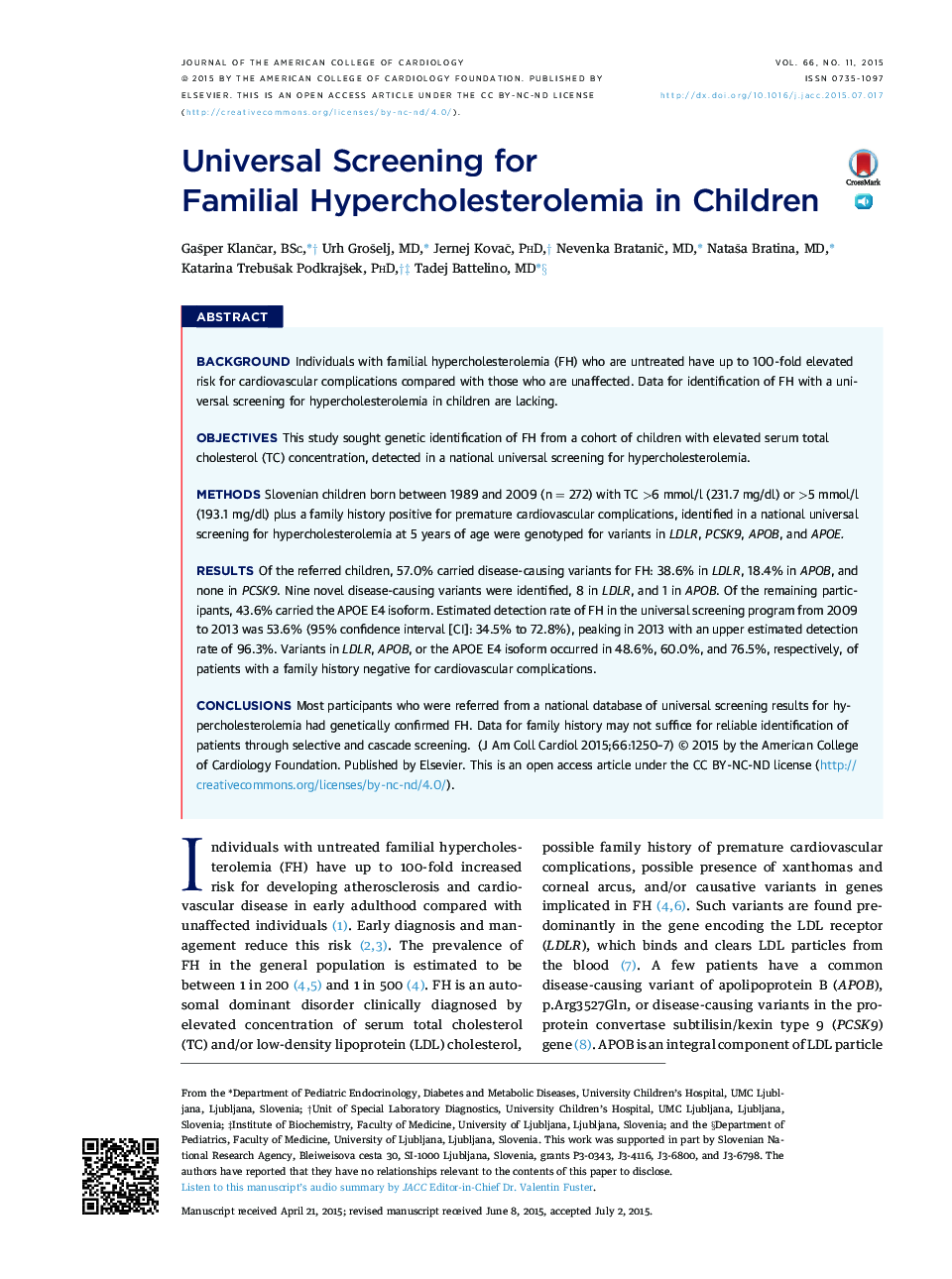| Article ID | Journal | Published Year | Pages | File Type |
|---|---|---|---|---|
| 5982435 | Journal of the American College of Cardiology | 2015 | 8 Pages |
BackgroundIndividuals with familial hypercholesterolemia (FH) who are untreated have up to 100-fold elevated risk for cardiovascular complications compared with those who are unaffected. Data for identification of FH with a universal screening for hypercholesterolemia in children are lacking.ObjectivesThis study sought genetic identification of FH from a cohort of children with elevated serum total cholesterol (TC) concentration, detected in a national universal screening for hypercholesterolemia.MethodsSlovenian children born between 1989 and 2009 (n = 272) with TC >6 mmol/l (231.7 mg/dl) or >5 mmol/l (193.1 mg/dl) plus a family history positive for premature cardiovascular complications, identified in a national universal screening for hypercholesterolemia at 5 years of age were genotyped for variants in LDLR, PCSK9, APOB, and APOE.ResultsOf the referred children, 57.0% carried disease-causing variants for FH: 38.6% in LDLR, 18.4% in APOB, and none in PCSK9. Nine novel disease-causing variants were identified, 8 in LDLR, and 1 in APOB. Of the remaining participants, 43.6% carried the APOE E4 isoform. Estimated detection rate of FH in the universal screening program from 2009 to 2013 was 53.6% (95% confidence interval [CI]: 34.5% to 72.8%), peaking in 2013 with an upper estimated detection rate of 96.3%. Variants in LDLR, APOB, or the APOE E4 isoform occurred in 48.6%, 60.0%, and 76.5%, respectively, of patients with a family history negative for cardiovascular complications.ConclusionsMost participants who were referred from a national database of universal screening results for hypercholesterolemia had genetically confirmed FH. Data for family history may not suffice for reliable identification of patients through selective and cascade screening.
